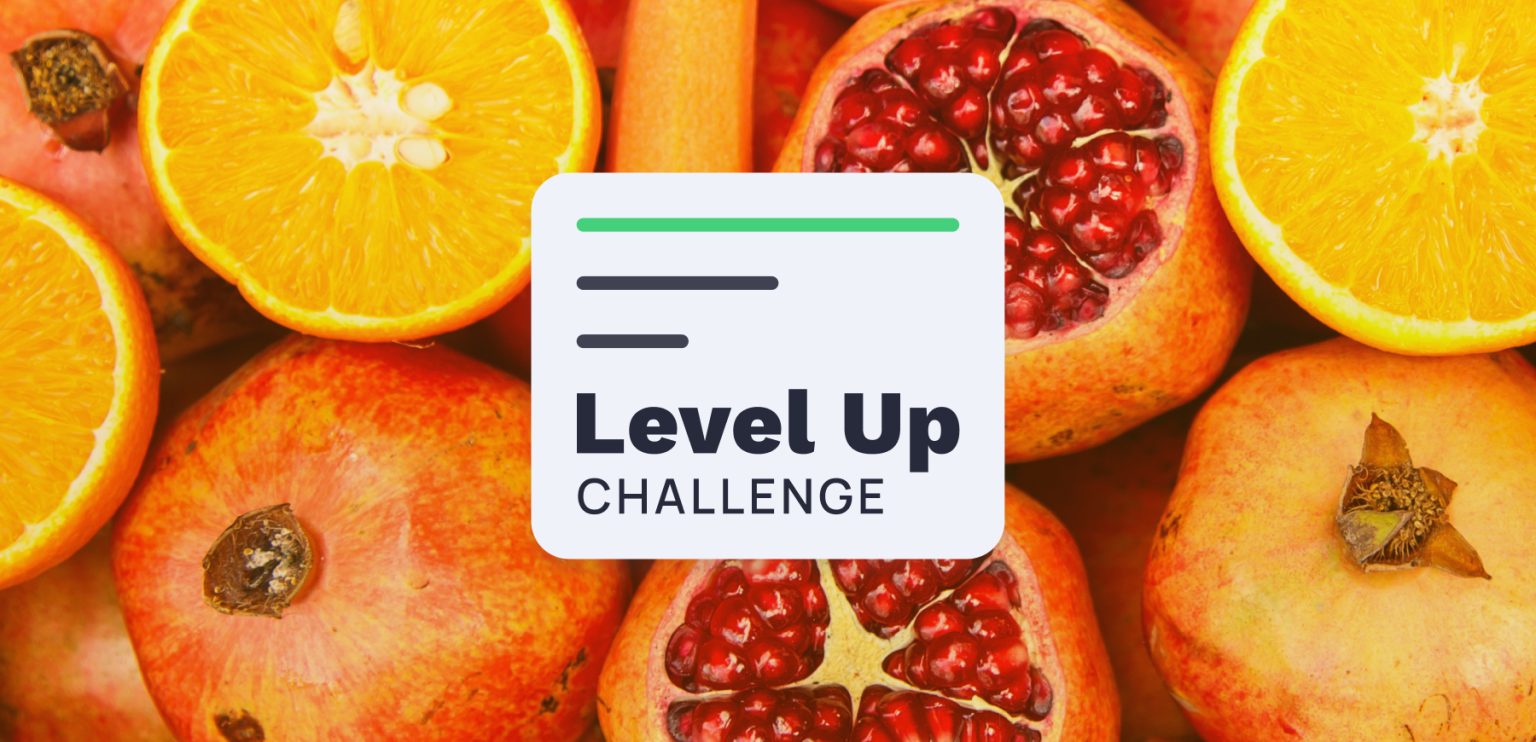Tracking your daily intake of nutrients using Cronometer is a great first step toward optimizing your health. But did you know that your body doesn’t absorb everything you eat equally? Various factors, including how you prepare your food and what you eat it with, can significantly influence nutrient absorption.
Wondering how to assess your own nutrient absorption? Ask your doctor for a blood test and they can go over the results with you.
In the meantime, here are five scientifically-backed strategies to help you make the most of the nutrients in your diet.
1. Pair Fat-Soluble Vitamins with Healthy Fats
Fat-soluble vitamins like A, D, E, and K require dietary fat for optimal absorption. Without enough fat, your body may struggle to fully utilize these essential nutrients. Research shows that consuming fat-soluble vitamins with healthy fats like olive oil, avocados, nuts, or fatty fish can significantly improve absorption. See how your nutrient intake stacks up over time with your Nutrition Report and find insights to fine-tune your health goals. Check out this blog to learn more!
Cronometer tip: When eating foods rich in these vitamins—like leafy greens or carrots—try adding a drizzle of olive oil or a handful of nuts to maximize nutrient uptake.
🥕 Scientific Backing
- A study published in The American Journal of Clinical Nutrition found that fat-soluble vitamins were absorbed more effectively when paired with fats from sources like olive oil, suggesting that fat is a crucial factor in maximizing vitamin bioavailability.
- Fat-soluble vitamins like A, D, E, and K are absorbed in the same way as dietary fats—they need fat to travel through the digestive system. Without enough fat in your meal, these vitamins can’t be effectively absorbed (1).
2. Vitamin C Enhances Iron Absorption
Iron comes in two forms: heme (from animal products) and non-heme (from plant-based sources). While heme iron is more easily absorbed by the body, non-heme iron can benefit from a boost. Vitamin C is a powerful enhancer of non-heme iron absorption because it helps convert iron into a form that is more easily absorbed by the body.
Cronometer tip: If you’re eating plant-based iron sources like spinach, lentils, or quinoa, pair them with foods rich in vitamin C like citrus fruits, bell peppers, or strawberries to boost absorption.
🍊 Scientific Backing
- Studies have consistently shown that combining vitamin C with non-heme iron increases iron absorption. One review found that 100 mg of vitamin C can increase iron absorption by up to 67% .
- Studies have consistently shown that combining vitamin C with non-heme iron increases iron absorption. For optimal results, consuming 50–100 mg of vitamin C alongside your meal—roughly the amount in a small orange – can increase iron absorption (2).

3. Cook Your Vegetables to Unlock Nutrients
Some nutrients are more bioavailable after cooking, particularly in vegetables with tough cell walls. Cooking helps break down the cell structure, making it easier for your body to access nutrients like lycopene, beta-carotene, and certain antioxidants.
Cronometer tip: Lightly steam, roast, or sauté vegetables like carrots, and spinach to increase the availability of key vitamins. Simmer tomatoes for 15-30 minutes to unlock lycopene, a powerful antioxidant.
🍅 Scientific Backing
- Research shows that cooking tomatoes increases lycopene absorption, an antioxidant linked to heart health. A study from The Journal of Agricultural and Food Chemistry showed that cooking tomatoes increased the availability of lycopene by more than 35%.
- While cooking does destroy some heat-sensitive nutrients (like vitamin C and folate), the overall benefit of making other essential nutrients more bioavailable often outweighs these losses. Using cooking methods like light steaming or sautéing, limit nutrient loss while maximizing absorption (3).
4. Fermented Foods Improve Gut Health for Better Absorption
A healthy gut is key to absorbing nutrients effectively. Fermented foods like yogurt, kefir, sauerkraut, and kimchi are packed with probiotics—beneficial bacteria that improve gut health and aid digestion. A well-balanced gut microbiome can enhance the absorption of nutrients like B vitamins and magnesium.
Cronometer tip: Incorporate fermented foods into your daily routine to boost the health of your digestive system, which in turn supports better nutrient absorption.
🫙 Scientific Backing
- A study published in Frontiers in Microbiology highlights how probiotics in fermented foods improve gut health, positively affecting the absorption of various nutrients.
- Beneficial gut bacteria help break down food components that we are not able to digest. This gives us access to nutrients that are normally too tightly bound for us to access. The bacteria used to make fermented foods, like kimchi and sauerkraut, can make small amounts of B12, providing a source of B12 for those following a vegetarian or vegan diet (4).

5. Avoid Nutrient Blockers
Some foods and drinks contain compounds that can interfere with nutrient absorption. For example, phytates (found in whole grains and legumes) and oxalates (found in spinach and rhubarb) can bind to minerals like calcium, zinc, and iron, reducing their absorption. To lower oxalate levels, consider boiling these foods, as heat helps break down oxalates, making the minerals more accessible. If you eat a lot of whole grains, nuts, or legumes, consider soaking or sprouting them before cooking to minimize the effect of phytates.
You can track your oxalate intake in Cronometer. Read this blog to learn how.
Cronometer tip: If you’re consuming a lot of oxalate-rich foods, pairing them with calcium-rich options can help offset their impact by reducing oxalate absorption.
🥛 Scientific Backing
- A review from the Journal of Nutrition outlines that soaking grains and legumes can reduce the presence of anti-nutrients like phytates, making minerals more bioavailable .
- Sprouting grains or soaking them for several hours triggers an enzyme that breaks phytates down. This releases the minerals that were bound by phytates, allowing them to be absorbed more easily by the body. Boiling leafy greens helps to leach oxalates out of the leaves, reducing the number of oxalates in the foods that you eat (5).
In Conclusion
Small adjustments to how you prepare and pair your meals can significantly boost your nutrient absorption, allowing you to get the most out of your food. Whether it’s adding healthy fats to your salads or enjoying a vitamin C-rich side with your plant-based meals, every bite can count toward better health.
Don’t forget to track your nutrient intake using Cronometer to ensure you’re hitting your goals and reaping the full benefits of your diet!
References
- Fat-soluble vitamin absorption improved by dietary fat consumption, Am J Clin Nutr. 1999;69(2):347-356. doi:10.1093/ajcn/69.2.347.
- Cook JD, et al. “Effect of ascorbic acid on non-heme iron absorption.” Am J Clin Nutr. 1980; 32(12): 2484-2489. doi:10.1093/ajcn/32.12.2484.
- Gärtner C, et al. “Lycopene is more bioavailable from tomato paste than from fresh tomatoes.” J Agric Food Chem. 1997; 45(10): 3796-3799. doi:10.1021/jf970090b.
- Marco ML, et al. “Health Benefits of Fermented Foods: Microbiota and Beyond.” Front Microbiol. 2017;8:1466. doi:10.3389/fmicb.2017.01466.
- Lopez HW, et al. “Mineral availability from phytate-rich foods and strategies to improve it.” J Nutr. 2000; 130(5): 1373S-1378S. doi:10.1093/jn/130.5.1373S.




